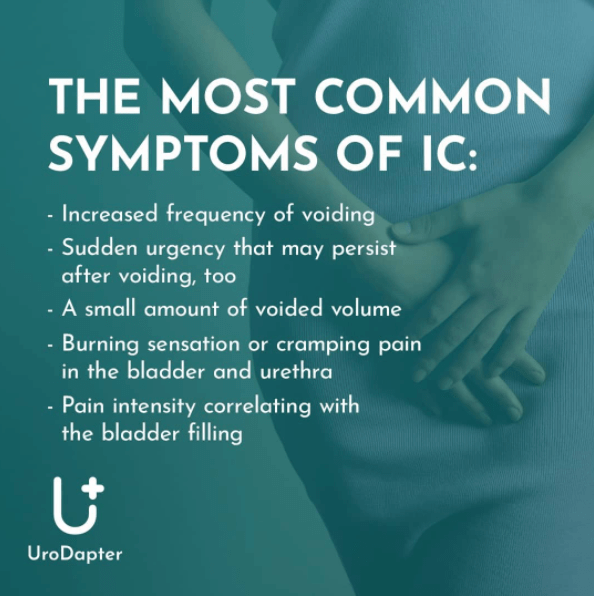Do you suspect that you may have interstitial cystitis (IC)?
Symptoms, recommendation for diet tips and seeking a doctor
Before we dive in, what is IC/BPS?
According to the National Institute of Diabetes and Digestive and Kidney Diseases (NIDDK), interstitial cystitis (IC), also called bladder pain syndrome (BPS) is a
“chronic, or long-lasting, condition that causes painful urinary symptoms. Symptoms of IC may be different from person to person. […] Health care professionals diagnose IC by ruling out other conditions with similar symptoms.”
When it comes to receiving a diagnosis for Interstitial Cystitis, also known as bladder pain syndrome (IC/BPS), it can be challenging to find the right doctor to evaluate your symptoms. IC symptoms can vary from person to person, but there are some telltale signs that urologists should look for. We talked to Sándor Lovász MD, PhD urologist, IC/BPS specialist, the inventor of the UroDapter to get his thoughts on diagnosing this disease - we have summarized some common issues and symptoms individuals may be exposed to and included some dietary tips on what to avoid in order to decrease these symptoms.
According to Mr. Lovász, there are some characteristic signs of IC people may easily recognize. The first one is frequent urination (usually in small amounts) or urinary urgency. Even after voiding, it may seem that you continually have persisting urgency to use the bathroom again. These symptoms may often be confused with a urinary tract infection, so doctors don’t always consider IC/BPS as a possibility. However, sterile urine (which contains no bacteria) can refer to this condition. Another common symptom is increased pain, even sudden flare-ups after consuming certain drinks or food groups. Alcoholic, caffeinated or carbonated drinks, as well as spicy food or artificial sweeteners often worsen the symptoms. He also mentions that it’s quite characteristic to have pain during or after sexual intercourse, in the form of burning sensation or cramping pain in the bladder and/or urethra. Finally, patients should note when their symptoms change based on their daily activities to have a better idea of what causes further pain or relief.
Lifestyle changes, like following an IC friendly diet can help avoid irritation of the bladder. Following an elimination diet, which you can read more about in our next blog post, can help you determine what foods and drinks are triggers for you. It is important to note that if you are experiencing any of these symptoms, it is crucial to go see your doctor and speak about it. However, as a short-term solution, to help you decrease the symptoms of IC you can avoid these types of foods and drinks which may worsen the symptoms:
- Caffeinated beverages,
- Alcoholic drinks,
- Hot and spicy foods,
- Sour and acidic foods, including carbonated drinks,
- fruit with high acidic content (lemons, limes, grapes, pomegranates, grapefruits, pineapples, apples, peaches, oranges, tomatoes),
- Certain dietary supplements containing fragrance oil and/or volatile oil compound,
- Herbal products, including herbal tea.
We asked Mr. Lovász if he had some final advice for patients struggling to receive an accurate diagnosis and support from their doctors. He emphasized that patients should continue to consult their symptoms with other doctors if they felt that their condition was not improving. He said “try to find a therapist who has more experience dealing with IC and try to contact them.” If there are no specialists around your area, he urges patients to schedule a virtual appointment with a specialist to find a treatment plan appropriate for them.
Millions of people suffer from bladder pain syndrome, and very few receive the proper diagnosis and treatment they need. We are here to encourage you not to give up and to keep pursuing treatment options to find a combination that works for you. We are here to provide insight and help find solutions for you!
Yours truly,
The UroSystem Team
